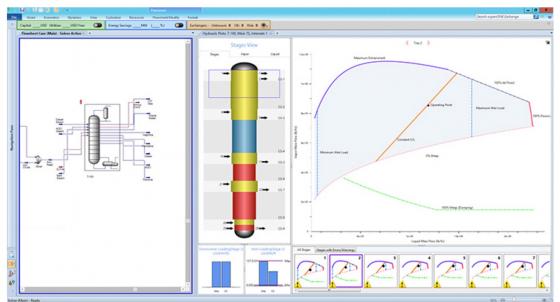Representative End User Clients


Representative Automation Clients
Representative Software Clients
 Likewise, to achieve this level of production, the required knowledge is really about the plant process rather than the automation. The important knowledge concerns energy and material balances, feedstock and product properties, thermodynamics, equipment properties, and production limitations. This is what is often called “deep process knowledge”. In my plant experience deep process knowledge is usually a very scarce resource, but a very valuable one. The rub is that the process operating points are set by the automation system, and the stability of the process at any operating point also depends on the automation system. This can make life difficult for a process expert who does not know all the details of DCS capability and how the automation has been implemented in a particular DCS. “Deep DCS knowledge” is also required to optimize plant operations, and that knowledge is highly vendor-specific. I argue that it is a bad thing for an automation system to create a barrier between a deep process expert and the plant. If an open process automation system can give a process expert more insight or (especially) more freedom to improve operations then it will be a big plus for its adopters. Furthermore, if the barrier is lower, than a wide range of experts, from in-house, OEMs, consultants, and others will be able to contribute to improved operations.
Likewise, to achieve this level of production, the required knowledge is really about the plant process rather than the automation. The important knowledge concerns energy and material balances, feedstock and product properties, thermodynamics, equipment properties, and production limitations. This is what is often called “deep process knowledge”. In my plant experience deep process knowledge is usually a very scarce resource, but a very valuable one. The rub is that the process operating points are set by the automation system, and the stability of the process at any operating point also depends on the automation system. This can make life difficult for a process expert who does not know all the details of DCS capability and how the automation has been implemented in a particular DCS. “Deep DCS knowledge” is also required to optimize plant operations, and that knowledge is highly vendor-specific. I argue that it is a bad thing for an automation system to create a barrier between a deep process expert and the plant. If an open process automation system can give a process expert more insight or (especially) more freedom to improve operations then it will be a big plus for its adopters. Furthermore, if the barrier is lower, than a wide range of experts, from in-house, OEMs, consultants, and others will be able to contribute to improved operations.
